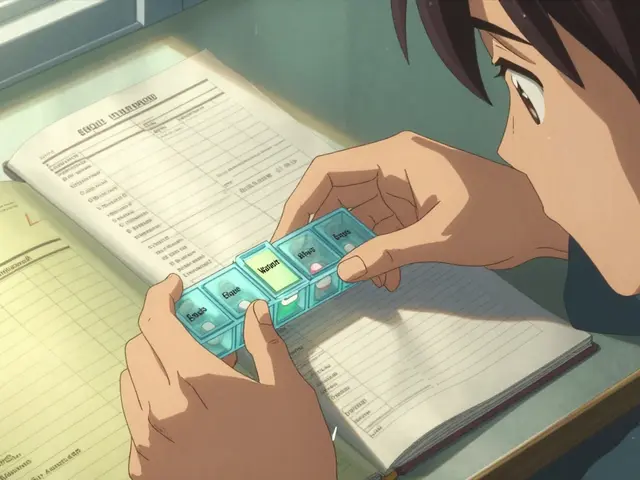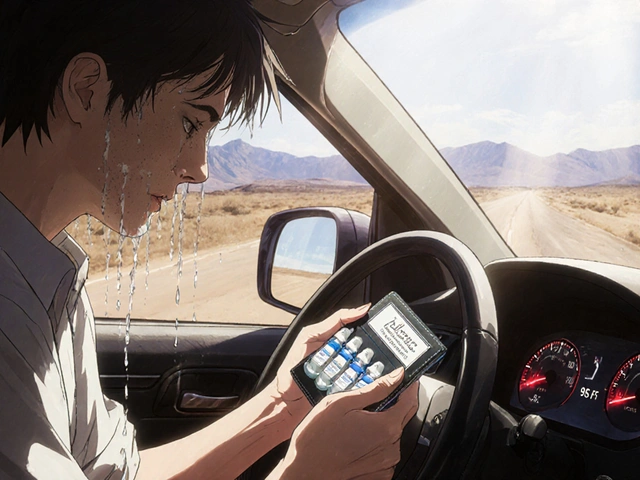Chloroquine Phosphate: What It Treats and When to Be Careful
Chloroquine phosphate is an antimalarial drug that’s been used for decades. Doctors also prescribe related drugs for some autoimmune conditions, but chloroquine can cause serious side effects if used the wrong way. You may have heard its name in news stories — some uses were investigated for COVID-19, but regulators did not clear it as a safe or effective treatment for that purpose.
If you’ve been prescribed chloroquine, follow your clinician’s directions exactly. Don’t self-prescribe based on social posts or headlines. If you’re asking whether it might help you, bring the question to a prescriber who knows your health history and current medications.
Safety and side effects
Common short-term effects include nausea, stomach pain, headache, dizziness, and skin rash. More serious problems can happen: vision changes from retinal damage, heart rhythm issues (QT prolongation), and severe allergic reactions. Long-term or high-dose use increases those risks.
Before starting long-term therapy, doctors usually recommend a baseline eye exam. If you notice blurred vision, black spots, new floaters, unusual ringing in the ears, fainting, chest pain, or irregular heartbeat, stop the medicine and get emergency care. Also tell your prescriber about any heart disease, kidney or liver problems, or history of seizures.
Drug interactions matter. Combining chloroquine with certain antibiotics (like azithromycin), some antidepressants, antipsychotics, or other QT-prolonging drugs raises the risk of dangerous heart rhythms. Always review your full medicine list with your clinician or pharmacist.
Buying, storing, and practical tips
Chloroquine requires a prescription in most countries. If you shop online, use licensed pharmacies only. Look for a physical address, a valid pharmacist contact, and clear prescription policies. Avoid sellers who promise quick cures, offer large discounts without asking for a prescription, or ship from unknown locations.
Keep the medicine in its original container, away from heat and moisture, and out of reach of children. Check expiration dates before use. If you miss a dose, follow the advice on your prescription label or ask your doctor—don't double up without guidance.
Pregnancy and breastfeeding require special discussion with your provider. Some antimalarials have safer alternatives depending on the situation. For emergency overdose — severe dizziness, fainting, breathing problems, seizures — call emergency services or your local poison control center right away.
Bottom line: chloroquine phosphate can work for specific conditions, but it isn’t a casual over-the-counter fix. Use it only under medical supervision, watch for warning signs, and buy from a legitimate pharmacy that asks for a prescription.
As a blogger, I've been closely following the impact of chloroquine phosphate on global health. This drug, commonly used to treat malaria, has been a game-changer in many regions where this disease is prevalent. Its widespread use has led to a significant decrease in malaria-related deaths and improved overall health in affected countries. However, we must also be cautious about the potential for drug resistance and side effects associated with its use. In conclusion, while chloroquine phosphate has had an undeniably positive effect on global health, it's crucial to continue researching and implementing strategies to combat malaria and other diseases effectively.
Read more






